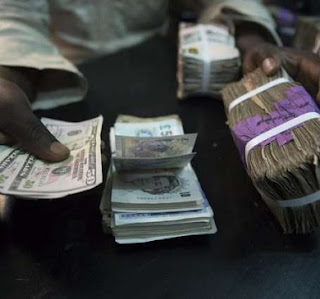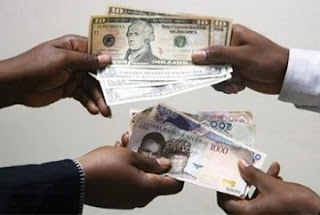Protocol
I am delighted to have the opportunity to address this distinguished and all-important retreat on the Nigerian economy. The purpose of this retreat as outlined in the Retreat Concept Notes is to generate immediate, medium and long-term viable policy solutions to the economic challenges facing us at both the Federal and State levels.
2. From information at my disposal, if we aggregate public views from the grassroots, city dwellers, the economic managers, consumer groups, the Unions and other stakeholders of the economy, there is near unanimity about the ills of our economy. But naturally, there are divergent views about solutions.
3. I am going to throw at this gathering some random policy options filtered from across the spectrum of our stakeholders on four (4) selected sectors of our economy.
These are Agriculture, Power, Manufacturing & Housing.
4. I have not touched Education, Science and Technology pointedly because these related subjects require a whole retreat by themselves.
5. Distinguished Ladies and gentlemen, these suggestions I am putting forward to you are by no means directives but a contribution to your discourse.
AGRICULTURE
6. On Agriculture today, both the peasant and the mechanized farmers agree with the general public that food production and self-sufficiency require urgent government action. For too long government policies on agriculture have been half-hearted, suffering from inconsistencies and discontinuities.
Yet our real wealth is in farming, livestock, hatcheries, fishery, horticulture and forestry.
7. From the information available to me the issues worrying the public today are:
Rising food prices, such as maize, corn, rice and gari.
Lack of visible impact of government presence on agriculture.
Lack of agricultural inputs at affordable prices. Cost of fertilizers, pesticide and labour compound the problems of farming. Extension services are virtually absent in several states.
Imports of subsidized food products such as rice and poultry discourage the growth of domestic agriculture.
Wastage of locally grown foods, notably fruit and vegetables which go bad due to lack of even moderate scale agro-processing factories and lack of feeder roads.
8. These problems I have enumerated are by no means exhaustive and some of the solutions I am putting forward are not necessarily the final word on our agricultural reform objectives:
First, we need to carry the public with us for new initiatives. Accordingly the Federal Ministry of Agriculture in collaboration with the States should convene early meetings of stakeholders and identify issues with a view to addressing them.
Inform the public in all print and electronic media on government efforts to increase local food production to dampen escalating food prices.
Banks should be leaned upon to substantially increase their lending to the agricultural sector. Central Bank of Nigeria (CBN) should bear part of the risk of such loans as a matter of national policy.
States should increase their financial support through community groups. The appropriate approach should be through leaders of community groups such as farmers cooperatives.
Provision of feeder roads by state governments to enable more effective evacuation of produce to markets and processing factories.
9. When I was a schoolboy in the 1950’s the country produced one million tons of groundnuts in two successive years. The country’s main foreign exchange earners were groundnut, cotton, cocoa, palm kernel, rubber and all agro/forest resources.
10. Regional Banks and Development Corporations in all the three regions were financed from farm surpluses. In other words, our capital formation rode on the backs of our farmers. Why was farming so successful 60 years ago? The answers are simple:
Access to small scale credits Inputs (fertilizers, herbicides etc) Extension services.
11. Now we have better tools, better agricultural science and technology, and greater ability to process. With determination we can succeed.
POWER
12. Nigerians’ favourite talking point and butt of jokes is the power situation in our country. But, ladies and gentlemen, it is no longer a laughing matter. We must and by the grace of God we will put things right. In the three years left for this administration we have given ourselves the target of ten thousand megawatts distributable power. In 2016 alone, we intend to add two thousand megawatts to the national grid.
13. This sector has been privatized but has yet to show any improvement in the quality of service. Common public complaints are:
Constant power cuts destroying economic activity and affecting quality of life.
High electricity bills despite power cuts. Low supply of gas to power plants due to vandalization by terrorists.
Obsolete power distribution equipment such as transformers.
Power fluctuations, which damage manufacturing equipment and household appliances.
Low voltage which cannot run industrial machinery.
14. These are some of the problems, which defied successive governments. In our determination to CHANGE we must and will, insha Allah, put a stop to power shortages. Key points to look at here are:
Privatization. We are facing the classic dilemma of privatization: Public interest Vs Profit Motive. Having started, we must complete the process. But National Electricity Regulatory Commission (NERC), the regulatory authority, has a vital job to ensure consumers get value for money and over-all public interest is safe-guarded.
Government to fast-track completion of pipelines from Gas points to power stations and provide more security to protect gas and oil pipelines.
Power companies should be encouraged to replace obsolete equipment and improve the quality of service and technicians.
MANUFACTURING
15. It grieves me that so many manufacturing industries in the country today are groaning and frustrated because of lack of foreign exchange to import raw materials and spare parts.
Painful though this is, I believe it is a temporary phase which we shall try to overcome but there are deeper, more structural problems bedeviling local industries which this Retreat should identify short and long-term answers to. Chief among these problems are:
Inadequate infrastructure:
Power
Roads
Security
leading to increase in costs of making Made-in Nigeria goods pricier than imports
High Cost of Borrowing Money:
Manufacturers Association of Nigeria (MAN) has been hammering on the fact that high lending rates make manufacturing unviable and unprofitable.
Lack of Long Term Funding:
The Nigerian Capital Market has not completely recovered from the 2008 worldwide crisis. Banks’ funding sources are short-term in nature due to sources of the liabilities.
Under-developed Science and Technology Research: As with Agriculture, Nigeria’s industries are in the main outmoded and industrial practices far behind those in advanced countries.
Unions:
We need to protect our workers from exploitation, but unions must cooperate with entrepreneurs to substantially improve productivity and quality of products if we are to move forward.
Smuggling:
Need I say more?
16. Recommended Actions on industries are:
The infrastructure Development Fund should be fast-tracked to unlock resources so that infrastructural deficiencies can be addressed.
There should be more fiscal incentives for Small and Medium Enterprises (SMEs), which prove themselves capable of manufacturing quality products good enough for export.
Central Bank of Nigeria (CBN) should create more incentives and ease credit terms for lending to manufacturers.
A fresh campaign to patronize Made-in-Nigeria goods should be launched. Example: all uniforms in government-sponsored institutions should be sourced from local factories.
HOUSING
17. Some estimates put Nigeria’s housing deficit at about sixteen million units. In our successful campaign to win the general elections last year our party, the APC, promised to build a million housing units a year. This will turn out to be a very tall order unless:
The Federal Government builds two hundred and fifty thousand units. The 22 APC States together manage another two hundred and fifty thousand units.We invite foreign investors together with local domiciled big construction companies to enter into commercial housing building to pick up the rest.
The most frequent public concerns brought to my attention are three-pronged:
1. Severe shortage of housing
2. High rents
3. Unaffordable prices for prospective buyers especially middle and low-income earners.
In addition, red tape, corruption and plain public service inefficiency lead to long delays in obtaining ownership of title documents.
Again, there are no long term funding sources for mortgage purposes.
18. These hurdles are by no means easy to scale, but we must find solutions to the housing deficit. This Retreat might start by looking at the laws.
Laws. The relevant laws should be reviewed to make the process of acquiring statutory right of occupancy shorter, less cumbersome and less costly. Court procedures for mortgages cases should make enforcement more efficient. Ministries of Works and Housing should upgrade their computerization of title registration system for greater efficiency.
Mortgage Institutions. Achieving affordable housing for all Nigerians will require the development of strong and enduring mortgage institutions with transparent processes and procedures.
Mortgage Re-financing Company. This institution when fully operational should ensure adequate support for mortgage financing.
HEALTHCARE
19. Last of the four areas that time will allow me to say a few words, but by no means the least, is healthcare. In my inauguration speech last May, I remarked that the whole field of Medicare in our country needed government attention. Dirty hospitals! (Few sights are more upsetting than a dirty hospital), inadequate equipment, poorly trained nursing staff, overcrowding. The litany of shortcomings is almost endless.
20. Sound health system is part of the prerequisites for economic development. Nigerians travel abroad, spending an estimated One Billion US Dollars annually to get medical treatment. Despite huge oil revenues the nation’s health sector remains undeveloped.
21. In attacking the challenges of this sector we could start with
More funding for health centres to improve service delivery. World Bank and World Health Organization (WHO) could be persuaded to increase their assistance.
Strengthening public health propaganda in primary prevention:
Environmental sanitation
Stop smoking
Better dieting
Exercising
And secondary prevention:
Screening and early diagnosis of diseases
NAFDAC to intensify efforts on reducing or stopping circulation of fake drugs in Nigeria.
Ministry of Health should work closely with the Nigerian Medical Association to ensure that unqualified people are not allowed to practice.
22. Finally I urge participants to learn from the array of experts and resource persons and learn from the shared experiences and perspectives to understand how other countries have transformed their economies and livelihoods of their people for the better. It is also the government’s expectation that this Retreat will highlight the respective roles and responsibilities of each tier of government in adopting and implementing agreed policy initiatives.
23. I hope this Retreat will come up with practical, viable solutions and recommendations as we chart a course for our nation in this turbulent domestic and international economic environment.
Thank you.














